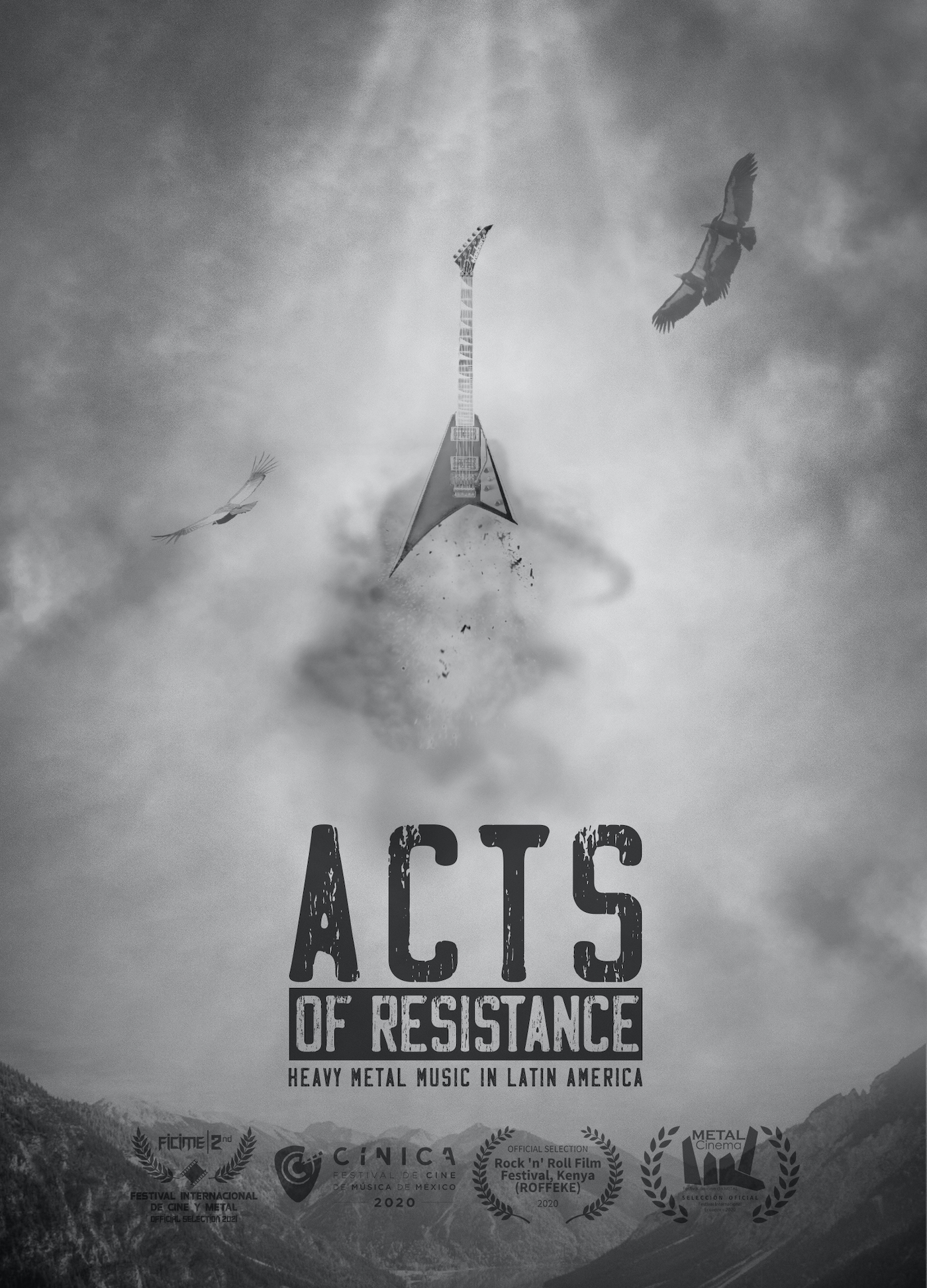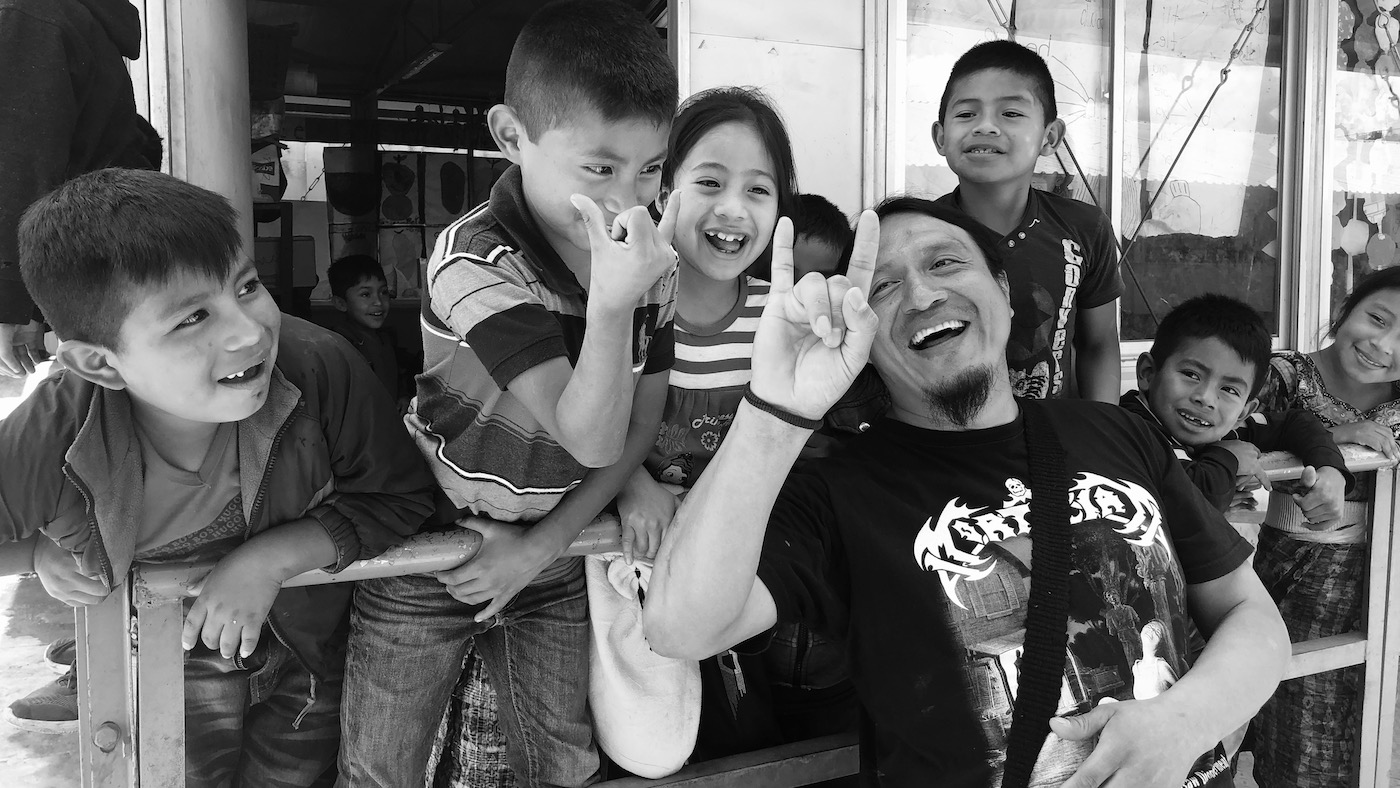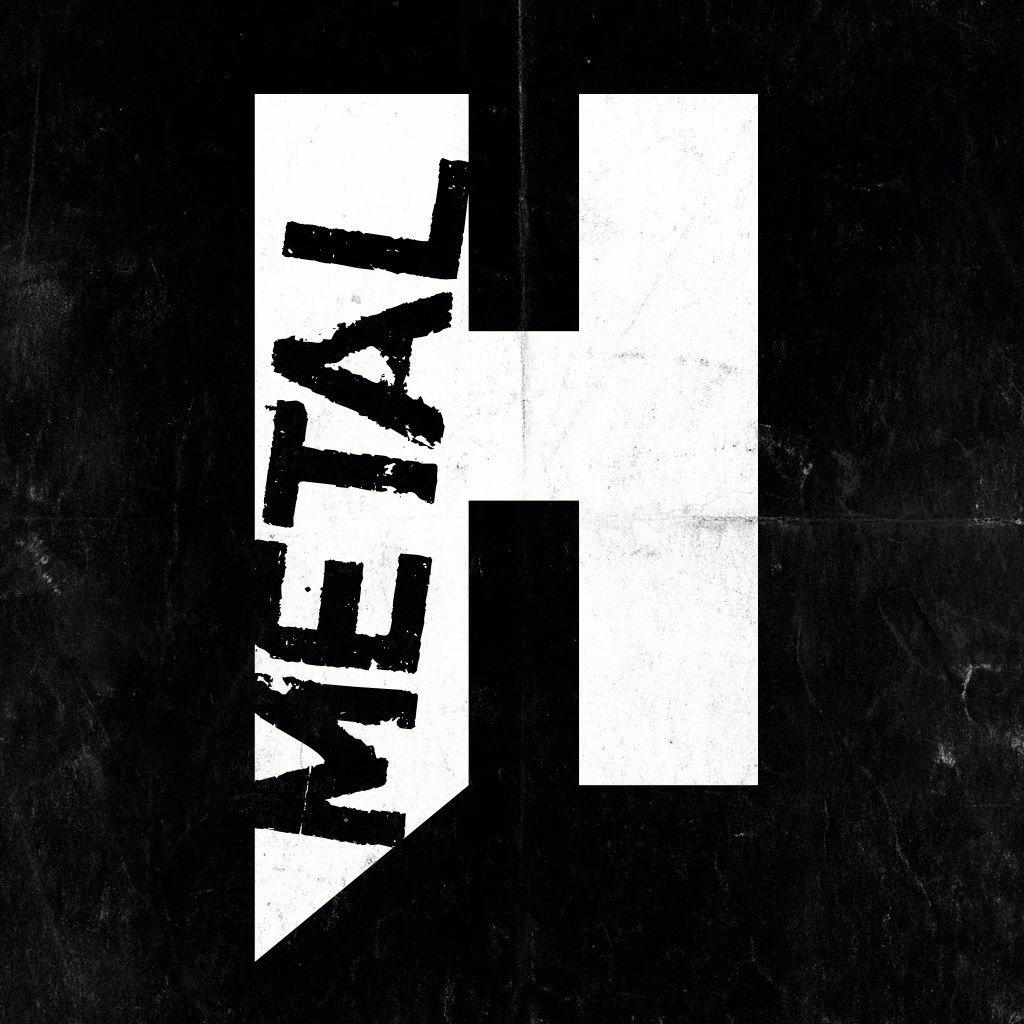“I’ve been traveling through Latin America for 10 years, documenting metal music, a musical genre that has been transformed to tell the stories of the region. In the process, metal-loving people have faced all kinds of social judgements. That they attack morality, that they engage in a multitude of excesses, and even that they have contributed to the Americanization of their countries. But perhaps the most constant criticism that I have seen in that journey, is that they do not provide solutions to the realities of their respective contexts. This documentary is an invitation to see a little discussed face of Latin American metal. One that posits the use of music to transform our realities. Each example, an act of resistance.”
So begins the voiceover on Dr Nelson Varas-Díaz’s powerful documentary Acts Of Resistance: Heavy Metal Music in Latin America, filmed in Guatemala, Columbia and Educador, and focussing on how metal fans and musicians use the power of music to affect genuine change in their societies. It’s a fascinating, eye-opening and inspirational film, and it’s being shown exclusively right here on Metal Hammer,
The film follows Díaz, a Professor at Florida International University’s Department of Global and Socio-cultural Studies, as he interviews artists, promoters and metal fans in the three countries, and discovers how metal is engaging and changing culture in each territory.
Díaz has previously produced the award-winning documentaries, The Distorted Island: Heavy Metal and Community in Puerto Rico, and The Metal Islands: Culture, History and Politics in Caribbean Metal Music. he also directed the film Songs of Injustice: Heavy Metal Music in Latin America, which premiered on Metal Hammer in April 2019.
Metal music has become a form of decolonial activism in Latin America, whether inspiring support for rural schools in Guatemala, offering engagement in environmental activism in Ecuador, or channeling memories of historical injustice and armed conflict in Columbia to help broker peace .
The first section of Acts Of Resistance centres around the work of the Internal Circle, a collective of socially-conscious metalheads in Sumpango, Guatemala, a town with a population of 28,488. “We call it the city of skulls,” says Gerardo Perez Acual, a member of the Circle, who sponsor a remote rural primary school, and raise funds for education via rock concerts where all attendees are required to donate three 100-page notebooks for the school. When the members of the Internal Circle visit the facility, the kids’ excitement is tangible: “The rockers, the metalheads, they are coming!” one thrilled child shouts.
In Columbia, the film centres on the extreme metal bands Masacre and Tears of Misery. The country has seen five decades of armed conflict involving the FARC (The Revolutionary Armed Forces of Colombia) guerrilla group versus the government and army, with added tension coming from paramilitaries seeking to gain control of the drugs trade, and the nation’s poorest citizens caught in the middle. Here, children are recruited into armed groups from age of seven or eight years old.
Sebastian Rodriguez, the guitarist from Tears Of Misery, explains that his band take their name from the tears of the victims of the armed conflict. Alex Okendo, from Masacre, wearing a Celtic Frost T-shirt, reveals that his group’s 30-year career is dedicated to documenting and sharing the horrors of the violence. “I think that a people who has no memory, is subject to repeating its misfortune,” he says.
“There are many bands that address the armed conflict,” Sebastian Rodriguez tells Hammer. “What we tell in our songs is not based on fantasy, but on a palpable reality. Full of death and hatred, but also as a symbol of remembrance and hope.”
The film also features interview with former FARC guerrilla Johan Andres Nino, once a political prisoner jailed by the Colombian state, who reveals that he and his colleagues draw inspiration from metal music in their struggle. “Metal was always there,” he says simply. “When I was in the guerrilla it was always there. When I was in jail, it was always there. And now that I’m out, it’s still there.”
The concluding third of the film is based in Ecuador, where veteran folk-metallers Curare sing against deforestation and mining by multinationals which pollutes the water table in a country where 15% of the land has been given to mining companies. “Water is worth more than gold,” the band sing in signature anthem Mama Yaku. “Water is worth more than oil. Water is worth more than copper. Water is our source of life.”
“Heavy metal was born on the fringes, as a cultural expression of the working class in Birmingham, away from the mainstream,” says guitarist/vocalist Juan Pablo Rosales. “The same is happening with Andean music, but there”s a sense of shared community, belonging and inclusion in both cultures.”
A free compilation album showcasing the artists and songs featured in the film can be downloaded for free from Bandcamp. Featuring 24 songs from 13 different countries, the compilation includes Masacre, Tears Of Misery, Curare and also the likes of Mexico’s Leprosy, Kranium from Peru, Arraigo from Argentina and more.
For the full story on Acts of Resistance, pick up the new issue of Metal Hammer, on sale today. For more info on AOR visit the film’s Facebook page.


